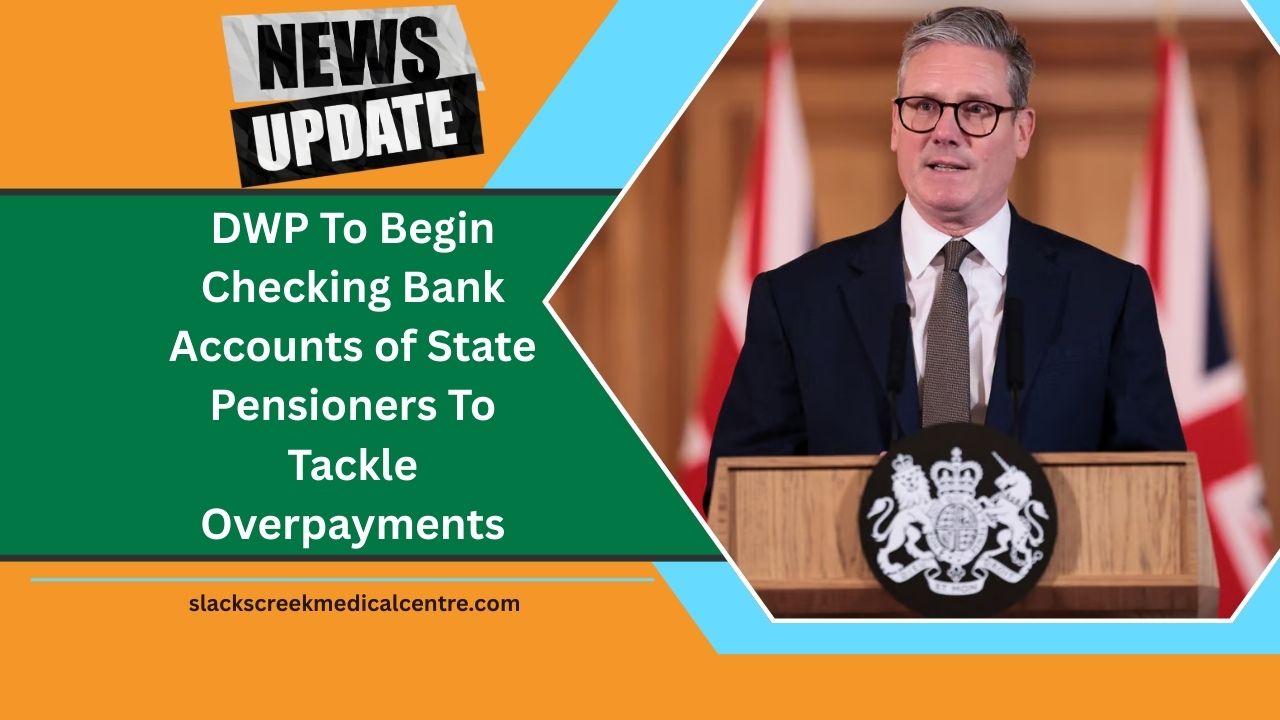In 2025, the Department for Work and Pensions (DWP) will begin checking the bank accounts of low-income state pensioners as part of a new initiative aimed at tackling overpayments.
The DWP will focus on the benefits that have the highest rates of incorrect payments, such as Universal Credit, Pension Credit, and Employment and Support Allowance (ESA).
This measure is being introduced to ensure that only eligible claimants receive benefits and to correct any discrepancies that could lead to overpayments.
Benefits Under Review by the DWP
| Benefit Type | Inclusion | Potential Review Focus |
|---|---|---|
| Universal Credit | Low-income support | Ineligibility and overpayment concerns |
| Pension Credit | Financial help for those over state pension age | Checking eligibility for housing benefits |
| Employment and Support Allowance (ESA) | Support for disabled individuals | Identifying any errors or discrepancies |
| Other Benefits (Future) | May include additional benefits in future | Pending parliamentary approval |
DWP’s New Verification Process:
The DWP’s new verification system represents a significant shift in how the department monitors eligibility for benefits.
Bank account checks will now be a part of the process to ensure the right individuals are receiving state benefits.
When the department identifies signs of ineligibility for one benefit, it will review other benefits that the claimant may be receiving.
For example, if someone is found ineligible for Pension Credit, the Department for Work and Pensions may also examine whether they qualify for Housing Benefit.
The DWP stresses that while these checks will be done algorithmically, there will still be human oversight to ensure accuracy. The department aims to prevent overpayments but also to ensure that claimants are not unfairly penalized.
Concerns About Privacy and Surveillance:
Despite the DWP’s emphasis on human oversight, privacy and disability campaigners have raised concerns.
Disability Rights UK argues that using algorithms to analyze large numbers of accounts could lead to false positives, where individuals are wrongfully flagged as ineligible.
The Big Brother Watch organization also expressed concerns about expansive surveillance, claiming that this approach could disproportionately impact vulnerable individuals, especially those who may already be facing difficulties managing their finances.
READ MORE: DWP 2025 Cost of Living Payment: Approval Granted – Check Your Eligibility!
Pension Credit Increases and the Impact on Vulnerable Pensioners:
As part of its ongoing support for pensioners, the DWP has reported a significant increase in Pension Credit uptake.
Since last summer, 50,000 new awards have been issued, a 64% increase compared to the same period the previous year.
The minimum guarantee for Pension Credit was also raised in April 2025, with single pensioners now receiving £227.10 per week, up from £218.15, and couples receiving £346.60 per week, up from £332.95.
This increase in support has been crucial for low-income pensioners, and those who are eligible for Pension Credit can expect an average £4,300 per year from the benefit.
The new bank account checks introduced by the Department for Work and Pensions mark a significant shift in how the department monitors and verifies eligibility for state benefits in 2025.
While this measure aims to prevent overpayments and ensure proper distribution of benefits, it has raised concerns about privacy and the potential for errors.
The Department for Work and Pensions will continue to provide human oversight to ensure the process is fair, but claimants should stay informed about the potential changes to their benefits.
FAQs
Why is the DWP starting to check bank accounts of pensioners?
The Department for Work and Pensions is aiming to reduce overpayments and ensure that only eligible individuals are receiving benefits like Universal Credit, Pension Credit, and ESA.
How will the DWP determine if someone is ineligible for a benefit?
The DWP will check claimants’ financial information and compare it with eligibility criteria. If discrepancies are found, the Department for Work and Pensions will investigate further.
What will happen if the DWP finds an error in a claimant’s benefit eligibility?
The Department for Work and Pensions will review other benefits the claimant may be receiving and may adjust payments or remove eligibility if necessary.
